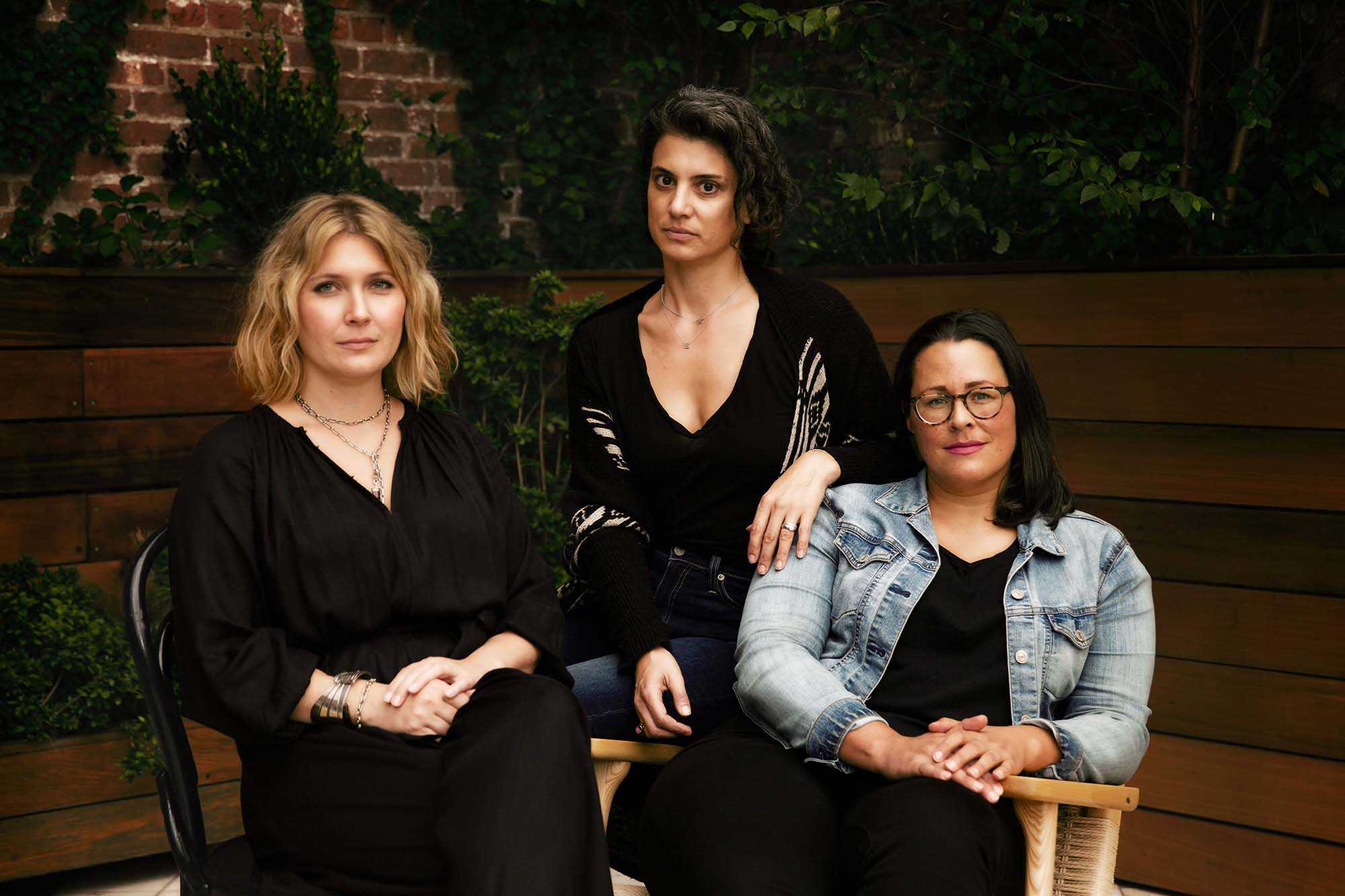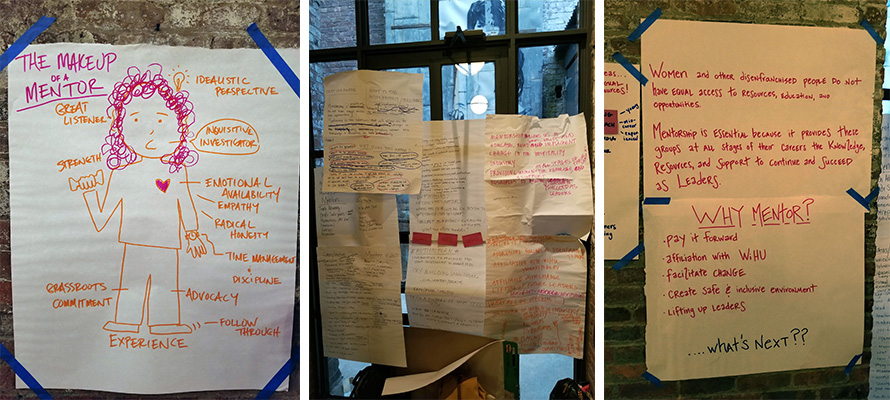Culinary Arts graduate Elizabeth Meltz worked for B&B Hospitality Group for more than a decade, from stints as a banquet chef and kitchen manager at Del Posto to her role as director of environmental health at Eataly, before she took the same position at Dig Inn this summer. Here, she shares a recap from her group’s inaugural Solution Sprint.
The #MeToo movement has exposed a long-accepted culture of harassment and gender discrimination in the hospitality industry. In late 2017, when the press reported sexual harassment allegations against Mario Batali, I felt compelled to act. At the time, I was working for what was then Batali & Bastianich Hospitality Group and wondered, Oh my God, am I part of the problem? Am I part of the solution? Did I know this? Should I have known this? I figured I wasn’t the only one feeling this way.
So in January 2018, I reached out to my network of women in hospitality, found a spot to meet up and gathered what turned out to be 45 women for an open discussion. The group has grown into an organization called Women in Hospitality United (WiHU). I run WiHU with my two co-founders, Erin Fairbanks and Liz Murray. This past September we launched our first public-facing event, the Solution Sprint: one day of crowdsourcing to drive resources, expertise and attention to solving community-identified challenges.

We created the Solution Sprint as a tool to harness the energy, ideas and potential of the WiHU community. In consultation with an outstanding group of advisors and our selection committee, we pulled pieces of inspiration from hack-a-thons in the tech community and design sprints in the design community. We focused on convening a cohort that was representative of the diverse roles and voices in the hospitality industry.
In advance of sprint day, individuals across the country submitted ideas to be workshopped and applied to join as team members. Once ideas and teams were selected, each team was connected and equipped with a facilitator for some advance sprint preparation. We selected topics such as mentorship, mental health, the wage gap, working parents, financial literacy, and harassment and gender discrimination.
Some of these groups made major progress at the Solution Sprint. The harassment and gender discrimination team has designed a poster for restaurants. The wage gap team came up with five questions you can ask during an interview:
- Does this company promote wage transparency?
- What is the tip structure? How is it shared?
- How does diversity look across all positions? And across leadership levels?
- What does the growth path look like for this position? Who makes the ultimate decision?
- What is the primary reason people leave? Is wage a factor?

We learned that the challenge for our industry moving forward will be recognizing that you cannot effectively solve for harassment issues in a vacuum. To achieve true industry and cultural change, the conversations around solutions must include a substantive look at race, income distribution, access to resources and power dynamics. We had countless one-on-one chats over the course of the day with women in leadership positions across the country. We were repeatedly struck by the power of simply creating a space for women to feel seen and heard. Our sprinters were gushing with ideas, shared experiences, challenges and solutions.
What happens next will be the real litmus test for what we’ve created. The real challenge is moving from ideas to execution. How will sprinters take these ideas out of the room, off of the page and bring them into the world? Stay up to date on the progress at womeninhospitalityunited.org.
Be part of restaurant and hospitality industry solutions through ICE's career programs.


